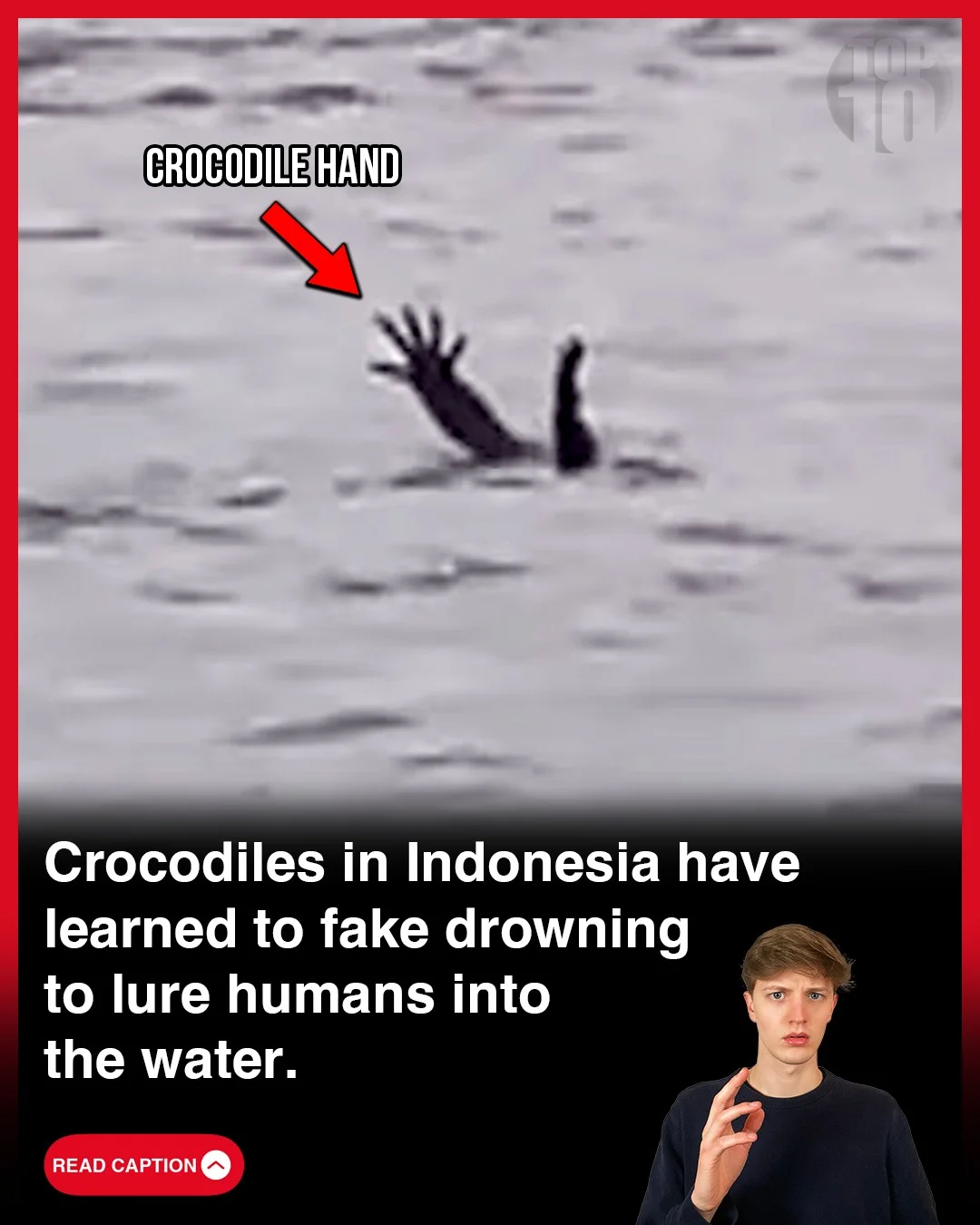When Viral Spreads Faster Than Truth
The internet is a breeding ground for fascinating, sometimes unsettling, stories. Recently, a video from Indonesia’s Barito River went massively viral, depicting a crocodile floating upside down and seemingly waving its forelimbs. The accompanying narrative was chilling: this intelligent predator was allegedly faking distress, pretending to drown to lure unsuspecting humans into the water for an ambush. The claim ignited a firestorm of speculation, dividing social media users between awe at reptilian cunning and genuine fear. But in the age of misinformation, it’s crucial to separate viral sensation from scientific fact. Is this truly a new, terrifying hunting strategy, or just another case of human imagination outrunning reality?
Unpacking the “Clever Crocodile” Theory and Expert Rebuttals

The premise of crocodiles faking distress to bait humans is undeniably captivating. It plays into our primal fears and the perception of these ancient reptiles as incredibly intelligent, “sophisticated hunters” as described by ScienceDaily. The video, garnering over 50 million views, clearly tapped into this fascination, with some social media users arguing that animals are indeed smarter than humans and capable of such advanced hunting strategies. The idea that a crocodile might observe human behavior – our instinct to help a struggling individual – and then exploit it for predation is a compelling, if terrifying, thought.
However, the widespread expert consensus decisively debunks this viral claim as misleading and without factual basis. Leading authorities in crocodile behavior and biology have strongly refuted the notion. Dr. Casey Holliday, a professor of pathology and anatomical sciences at the University of Missouri, outright called the idea “hysterical,” stating definitively that the animal was “not luring people into the water.” Dr. Gregory Erickson, a professor in the Biological Science Department at Florida State University, echoed this sentiment, emphasizing that such behavior would be “unprecedented.” He highlighted that crocodiles are “inherently stealthy” and don’t need to resort to such extreme, obvious tactics to access prey.
So, what was the crocodile doing? Experts offer more grounded, albeit less sensational, explanations. Zoologist Graham Webb speculated that the crocodile’s unusual posture might be due to its tail being caught or hindered, preventing it from swimming normally. Brandon Sideleau, a researcher specializing in human-crocodile conflict, suggested another possibility: the crocodile might have had prey in its mouth, which could impair its movement and cause it to float unusually. These explanations, while not as dramatic as a cunning ambush, align with known crocodile physiology and behavior.
The division on social media further illustrates the challenge of discerning truth online. While some users embraced the “smarter than humans” narrative, others correctly pointed out more plausible reasons for the crocodile’s behavior, including injury or environmental factors, or even a hunting strategy for fish in murky water (though not for luring humans).
The danger of such misinformation is significant. Experts warn that spreading unconfirmed claims can lead to unwarranted fear and hostility towards wildlife, potentially endangering crocodiles themselves. While human-crocodile conflict is a real concern in many regions, often avoidable with caution and awareness, exaggerating their cunning with fictional scenarios can lead to dangerous overreactions and misguided attempts at intervention.
Fact Over Fear in Wildlife Encounters
The viral video of the “drowning crocodile” serves as a powerful reminder that not everything sensational online holds true. While crocodiles are indeed intelligent and formidable predators, the notion of them feigning distress to bait humans is a myth, firmly debunked by scientific experts. This incident underscores the critical importance of relying on verified information from specialists rather than succumbing to fear-mongering or imaginative speculation. For those living or traveling in crocodile-inhabited areas, the best defense remains vigilance, awareness, and adherence to established wildlife safety guidelines. Understanding the truth about these magnificent creatures, rather than propagating unfounded fears, is essential for both human safety and wildlife conservation.